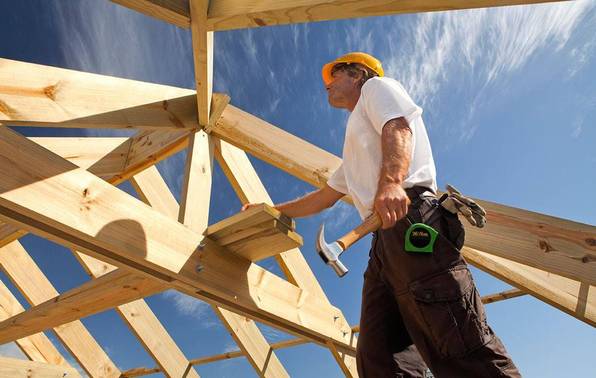Employing subcontractors
Either the builder engages the subcontractors, or if you are managing the project, you might engage them yourself.
Either the builder engages the subcontractors, or if you are managing the project, you might engage them yourself.
Who employs the subcontractors?

Subcontractors are generally contracted by the builder who is the head or main contractor. Subcontractors are hired to do the specialist areas of work, such as roofing, plumbing, electrical, joinery, plastering, painting and brickwork. Unless you have a labour-only contract and hire them yourself, the subcontractors will be answerable to the main contractor. So, all instructions must go through the main contractor who will be responsible for the quality of their work.
In some cases you might know someone who can do part of the job for you. You might have an uncle who is a plumber and want to contract him directly. He will be known as a nominated subcontractor. This is fine, provided this is noted in your contract with the main contractor so that everyone understands where their responsibilities start and finish.
But be aware that if your nominated subcontractor gets behind, or fails to turn up, it can delay the whole job and you will be liable for any extra costs due to the delay. Also be aware that as the person contracting the nominated subcontractor, you will be liable for the quality of their work. You won’t be able to go back to the main contractor for remedies if your uncle does a shoddy job.
If you have someone other than the main contractor managing the project, such as the architect or designer, they will organise the subcontractors for you.
Choosing subcontractors yourself
If you are managing the project yourself and are responsible for choosing the subcontractors, use the same criteria as you used to choose the builder.
Go to the various trade organisations for lists of names.
Because subcontractors are likely to be involved in a number of projects simultaneously, on other building sites, getting them to appear at the right time can be a difficult but crucial part of your task.
Licensed plumbers
With the exception of minor work, for example: installing washing machines or dishwashers, changing washers, taps and ball valves, all plumbing work must be carried out by a Licensed or Certifying Plumber.
Plumbers are licensed by:
New Zealand Plumbers, Gasfitters and Drainlayers Board
PO Box 10-655, Wellington
tel: 0800 743 262; 04 494 2970,
fax: 04 494 2975.
You can check the public register at www.pgdb.co.nz.
Either the plumber, or the company the plumber works for, must hold a licence. Make sure you see their Authorisation Card. If they don't have the appropriate licence, their work must be supervised by a registered person.
Trainee plumbers and some other exempt persons may do plumbing work, but their work must be supervised by a Certifying Plumber.
Note that new plumbing and drainage work will require a building consent.
Licensed gasfitters
Any work to connect gas fittings and gas appliances must be done or supervised by a Licensed or Certifying Gasfitter. This includes all new installations and any work to extend, replace or alter installations or pipework. The consequences of having incorrectly fitted gas appliances can be fatal, so DIY is not allowed.
A licensed or certifying gasfitter is registered by the:
New Zealand Plumbers, Gasfitters and Drainlayers Board
PO Box 10-655, Wellington
tel: 0800 743 262; 04 494 2970
fax: 04 494 2975.
You can check the public register at www.pgdb.co.nz.
Trainee gasfitters and some exempt persons may carry out gas fitting, but this must be supervised by a Certifying Gasfitter. When you employ a gasfitter, make sure you see their Authorisation Card, and check the back for any supervision requirements.
Once the appliance and installation work has been inspected, tested and certified as satisfactory, you must be issued with a copy of the Gas Safety Certificate by your gasfitter. A Certificate is required for any new gas installation, and for any addition or alteration to an existing installation since 1 July 2013.
The Ministry of Business, Innovation and Employment will keep a database of high-risk electrical and gasfitting work, but this will not include normal household work. NB: Make sure you keep certificates and all records of the work in a safe place.
If you do not have a Certificate for earlier work (since 1993), contact the gasfitter or company who carried out the work and ask for a copy, or search the Plumbers, Gasfitters and Drainlayers Board website. You will find a form that you can fill out to get a copy of an existing certificate, on payment of a small fee.

Building articles
Whether you're planning to build your own home or renovate an existing one, we've got you covered with a wide range of articles covering the whole process.

Renovating articles
Renovating and altering houses is a favourite pastime for many New Zealanders. Our articles take a look at what's involved when you undertake a renovation project.

Home maintenance
Regular maintenance is needed to ensure your house holds its value and remains safe and comfortable to live in.
Member comments
Get access to comment